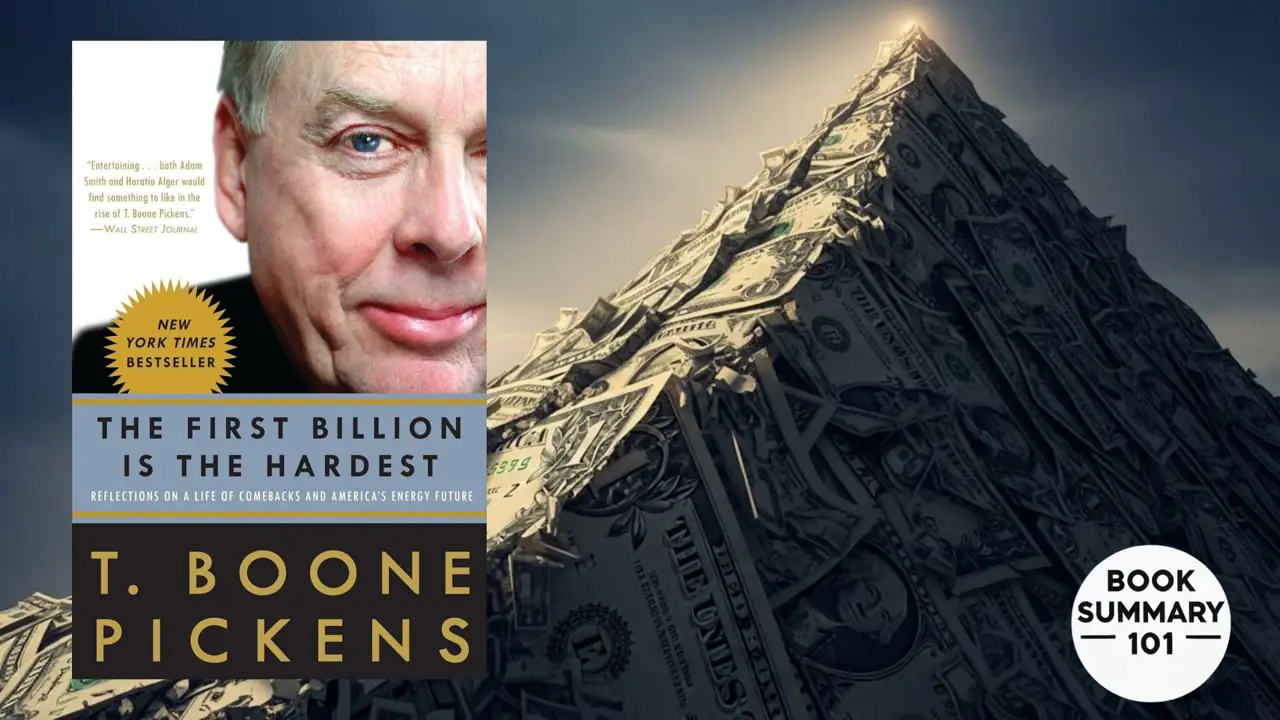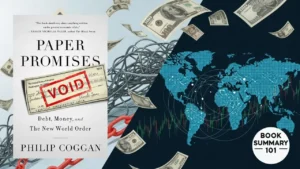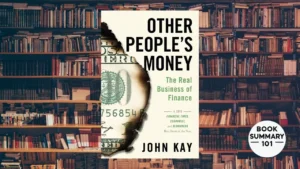In The First Billion Is the Hardest, legendary entrepreneur T. Boone Pickens delivers a candid, insightful look into his life—showing us the grit, wisdom, and foresight that carried him through his career as an oilman, corporate raider, and philanthropist. This isn’t just a “how I made it big” memoir. Pickens shares practical advice for staying resilient, the potential of America’s energy resources, and how to keep learning and growing at any age.
Let’s dive into what makes Pickens’ story so compelling and worth reading.
Billion-Dollar Lessons You Can Use Today
Get Inspired by Pickens’ Resilience
Pickens’ life story isn’t just about his billions; it’s a testament to unyielding resilience. This man has been through financial crashes, corporate betrayals, and health challenges, and yet, he always found a way to rise again. In one chapter, he recounts a painful time when his hedge fund went from boom to bust, losing billions in a matter of months. Most people would be crushed. But Pickens? He took a step back, re-evaluated his approach, and threw himself right back into the arena, determined to make it all back and then some. This resilience wasn’t an inherited trait—it was something he learned, practiced, and honed through decades of hard work. If you’re facing tough times, this book can be a powerful reminder that setbacks are temporary and comebacks are possible. Pickens’ story feels like a personal pep talk from someone who’s been in the trenches.
Learn About America’s Energy Future—from Someone Who Helped Shape It
Pickens didn’t just work in the oil industry; he was part of the American energy landscape for more than half a century. His opinions are based on lived experience and firsthand knowledge of how our energy systems work. For instance, he discusses the need for America to break free from its reliance on foreign oil, which he saw as not only economically dangerous but a real national security risk. He makes a strong case for harnessing the country’s natural resources in ways that are sustainable, cost-effective, and secure. He dives deep into the advantages of wind and natural gas, describing in simple terms how these resources could fuel America’s future.
What makes this book unique is that Pickens balances pragmatism with vision. He knows the financial and logistical hurdles involved in shifting to renewables but believes that a combination of oil, wind, and natural gas can create a balanced, secure energy landscape. Whether you’re already interested in renewable energy or new to the topic, his arguments make the case for an energy plan that’s smart, realistic, and patriotic.
Discover the Power of Reinvention—At Any Age
Many people hit a certain age or milestone in their career and start to feel like they’re out of options or done taking risks. Pickens’ story is a refreshing, reality-based reminder that reinvention is possible at any stage in life. He didn’t just switch things up once or twice; he continually evolved throughout his career. Early on, he was a geologist, scouting for oil. Then he became a CEO and a corporate raider, shaking up the business world. Later in life, he transitioned into hedge funds, then renewable energy, and finally, philanthropy. Pickens was 68 when he started his hedge fund, and nearly 80 when he launched the “Pickens Plan” to advocate for clean energy.
His story challenges the stereotype that we should slow down as we age. He shows us that if we stay curious, keep learning, and aren’t afraid to take calculated risks, we can continue to make an impact and find new passions—even well into our later years. For anyone feeling stuck in their career or looking to pivot, Pickens’ journey can serve as a roadmap for reinvention.
See the Big Picture on Wealth and Purpose
Pickens’ approach to wealth is refreshing because it’s not just about accumulating money—it’s about using it as a force for good. His views on philanthropy are woven throughout the book, and he talks openly about how he used his wealth to make a positive impact, whether by supporting education, healthcare, or his vision for America’s energy independence. He sees wealth as a tool, one that should be put to work in service of a purpose beyond just personal gain.
He also stresses the responsibility that comes with money. For him, wealth isn’t about flashy displays or hoarding; it’s about making a difference. His efforts to influence America’s energy policies, for example, came from a genuine concern for the country’s future. He put his money where his mouth was, investing millions in his “Pickens Plan” and advocating for renewable energy. It’s a refreshing take on wealth that emphasizes purpose, community, and a larger vision. For readers, this might spark new ideas on how they can align their own financial success with values that matter.
Real-Life Examples
Pickens doesn’t shy away from detailing the ups and downs. At one point, he recalls losing $3 billion after his hedge fund took a downturn. Imagine that—the billionaire actually found himself in financial trouble after he’d already made a name for himself. Rather than wallowing in defeat, he regrouped and focused on his vision for America’s energy future.
The book is full of these gritty, teachable moments. For instance, during the 1980s, Pickens became known for his hostile takeovers of big oil companies. He didn’t just target companies for profit; he saw weaknesses in how these companies operated and sought to make them better. His approach shook up Wall Street, and while he was often criticized, he forced some of the world’s largest corporations to be more efficient, innovative, and accountable.
When he later pivoted to renewable energy—particularly wind and natural gas—Pickens’ message was clear: America should be less dependent on foreign oil, which he viewed as a national security risk. This wasn’t a popular opinion at the time, but Pickens didn’t back down. Even in his 80s, he launched the “Pickens Plan,” aiming to make the U.S. a leader in renewable energy.
Join the Conversation!
The First Billion Is the Hardest is a book for anyone interested in personal growth, resilience, or the future of energy in America. It’s a must-read if you want to learn from someone who’s been through the highs and lows of business, wealth, and reinvention. Have y.ou read it? What’s your take on his ideas for energy independence, or his approach to bouncing back from setbacks?
Drop a comment below! Would love to hear your thoughts and start a discussion about how we can all apply a bit of that T. Boone Pickens tenacity in our own lives
5 quotes from The First Billion Is the Hardest with explanations in your preferred format:
📖 “A fool with a plan can outsmart a genius with no plan.”
Meaning: Strategy beats raw talent if you know where you’re going.
Simple: Even if you’re not the smartest, a solid plan can make you win.
📖 “Be willing to make decisions. That’s the most important quality in a good leader.”
Meaning: Leadership is about acting with conviction, not sitting on the fence.
Simple: Leaders step up and decide, even if it’s tough.
📖 “When you are hunting elephants, don’t get distracted chasing rabbits.”
Meaning: Focus on the big goals instead of wasting energy on small distractions.
Simple: Don’t lose sight of the big prize.
📖 “The older I get, the more I see that the difference between winning and losing is how you manage the losses.”
Meaning: Success isn’t about never failing—it’s about bouncing back stronger.
Simple: Winners handle losses better than losers do.
📖 “Work eight hours and sleep eight hours, and you’ll be successful if they are not the same eight hours.”
Meaning: Separate work from rest to perform at your best.
Simple: Don’t mix work time with sleep time.



